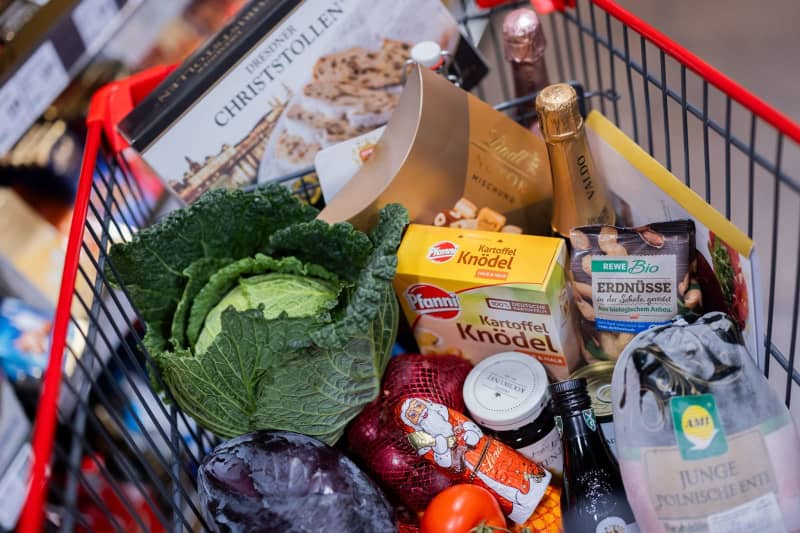Private consumption in Germany is projected to play a limited role in revitalizing the country’s struggling economy in the upcoming year, following a lukewarm Christmas shopping season. A consumer survey conducted by the German market research institutions GfK and NIM reveals that the consumer climate remains weak due to lingering uncertainty among the population. Rolf Bürkl, a consumer expert from GfK, highlighted at the survey’s presentation that a sustained recovery in consumer confidence is not on the horizon, as consumers continue to face various economic pressures. Despite this, there has been a slight uptick in the buying mood recently, with improvements in consumer income expectations and a minor reduction in saving behavior observed in December.
Looking forward, the GfK survey suggests that while there may be a marginal improvement in the consumer climate for January, it is still considered poor when compared to long-term trends. Bürkl pointed out that despite the slight positive trend in sentiment, it merely serves as a partial recovery from recent declines. Since mid-2024, consumer sentiment has been characterized by stagnation at best, indicating persistent challenges ahead. The ongoing economic pressures, particularly high food and energy prices, are identified as primary contributors to the dampened consumer morale. The study underscores that these costs are heavily influencing household expectations and spending behaviors.
Compounding the issue, concerns about job security are rising due to growing reports of layoffs and job cuts across various sectors. This precarious employment landscape is likely to further suppress consumer spending as households are hesitant to commit to purchases amid uncertainty about their financial stability. Although there has been a slight recovery in household income expectations, they still lag significantly behind the levels observed several months ago. This decline in sentiment reflects the broader economic anxieties facing consumers, further indicating that a robust recovery in private consumption is unlikely.
The report also highlights the impact of weak growth forecasts from economic research institutions and the ongoing rise in unemployment rates, which contribute to the overall lack of consumer confidence. As consumers navigate these uncertainties, their willingness to spend remains subdued, creating a challenging environment for businesses hoping to stimulate growth through increased private consumption. GfK conducts monthly surveys involving 2,000 consumers to gauge sentiment as part of its commitment to providing insights for the European Commission. The timing of the latest survey, conducted from December 5 to 16, reflects immediate consumer attitudes during a critical shopping period.
Ultimately, while there are signs of slight improvements in consumer expectations, these positive shifts are overshadowed by serious underlying economic challenges. High prices for essentials coupled with job security fears present significant barriers to consumer confidence and spending. As households grapple with these pressures, the anticipated marginal improvements in the consumer climate may not lead to significant growth in private consumption or broader economic recovery in Germany.
In summary, the outlook for private consumption in Germany remains bleak for the upcoming year, with consumer confidence stymied by economic uncertainties. The findings from the GfK and NIM consumer survey illustrate the complex interplay of factors affecting spending decisions, including inflated prices and job insecurity. Despite recent improvements in sentiment, the overall picture points towards stagnation rather than recovery, suggesting that significant challenges lie ahead for both consumers and the broader economy.

